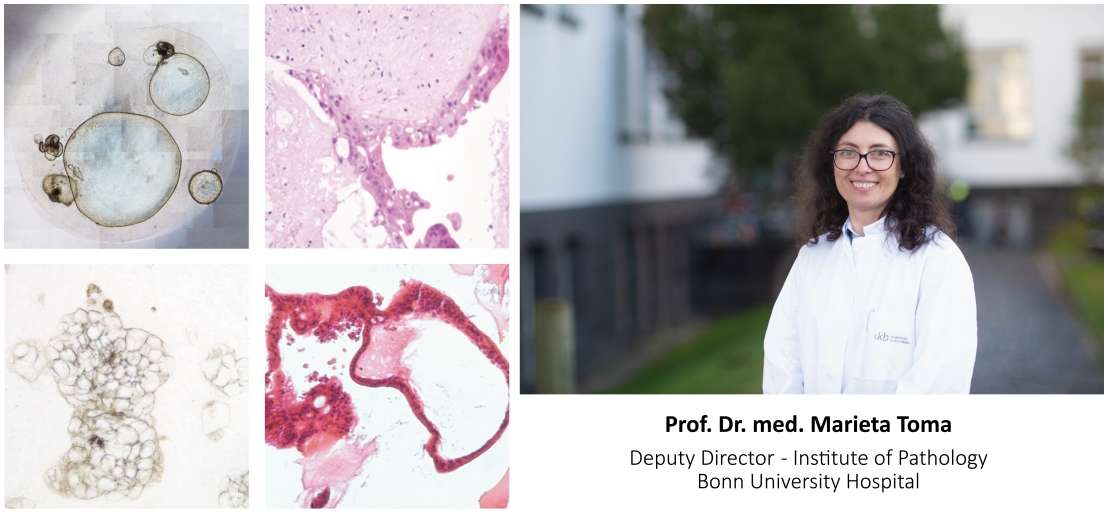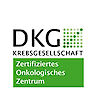AG Prof. Dr. Marieta Toma
Toma Lab - Experimental Pathology

About the Lab
Organoids
Patient-derived tissue can be used to culture three-dimensional self-organized multi-cellular structures called organoids. In contrast to commercial cell lines, organoids retain key features of the tissue they are derived from, such as architecture and functionality. As such, organoids are an important tool in translational research and personalized medicine. We have established protocols for the cultivation of organoids derived from several tissue types and cancer entities. Our main goal is to redefine basic cancer research by establishing a routinely applicable model, integrating both clinical and in vitro information.
In the last years, new treatment options such as immunotherapy have become available. Still, in many patients, the response to available treatment options is inadequate. In order to gain insight into the molecular mechanisms and reasons behind these resistances, our lab works on patient-derived organoid models, which reliably recapitulate tumors, mirroring patient-to-patient differences.
Cholangiocarcinoma
CC is a rare and aggressive type of cancer with rising incidence worldwide and very limited therapeutic options. The main points of interest are to identify novel therapeutic targets, mechanisms of therapy resistance, and mechanisms of metastasis. State of the art patient-derived organoid (PDO) models are being used as in vitro cancer models to recapitulate tumor characteristics in a physiologically-relevant and patient-specific manner.
Brain Metastasis Patient-Derived Organoids
Brain metastases occur in about 10% of patients with cancer and most of them are from lung carcinomas, melanomas, breast carcinomas. Our aim of this project is to establish organoids from brain metastases of different entities, comprehensive characterization of the organoids and if the primary tumor is present, comparison with the primary tumor regarding gene mutations, and to analyses the different therapy on the organoids (chemotherapy, immunotherapy, and radiotherapy).
Melanoma Breast carcinoma Lung carcinoma
Renal cell carcinoma
Accounting for 80% of renal cancers, the clear cell renal cell carcinoma is the most common form of renal cancers and responsible for the majority of renal cancer-associated deaths.
Showing high resistance against common chemotherapy as well as radiation therapy, treatment options for ccRCC are limited. Additionally, the tendency of ccRCC to metastasize results in bad prognosis for patients. In recent years, the overall survival rate increased with the development of novel immune checkpoint inhibitors, leading to a paradigm change in therapy approaches for clear cell renal cell carcinoma. With some patients still showing inadequate response to immunotherapy approaches against ccRCC, research on patient-derived organoids is used to give new insight into therapy-response in tumor-settings, aiming to improve the way to discovery and design of new personalized therapy approaches, to improve outcome in patient care.
Biomarkers in renal cell carcinoma
There are some established prognostic factors in advanced renal cell carcinoma but unfortunately none of them accurately predicts patient survival. There is ongoing research for the identification of new prognostic factors which can predict patient prognosis more accurately. One promising possibility to improve prognosis scores are biomarkers. These can be genes or molecules, that are more or less specific for one (tumor-)tissue type and can affect survival. Furthermore some biomarkers have the potential to be targeted by medication.
The project focuses on the role of a biomarker in renal cell carcinoma. To achieve this aim, well-established cell lines are used to elucidate the potential influence on cancer growth, invasion and metastasis.

















